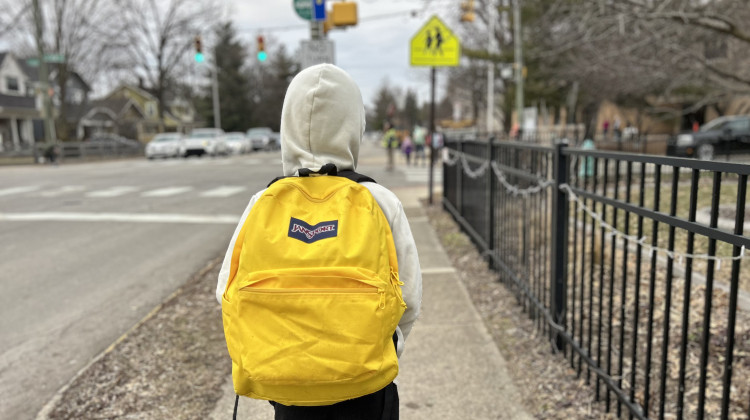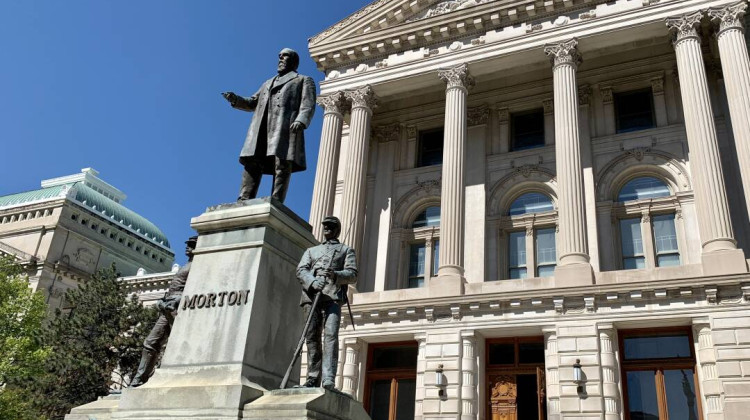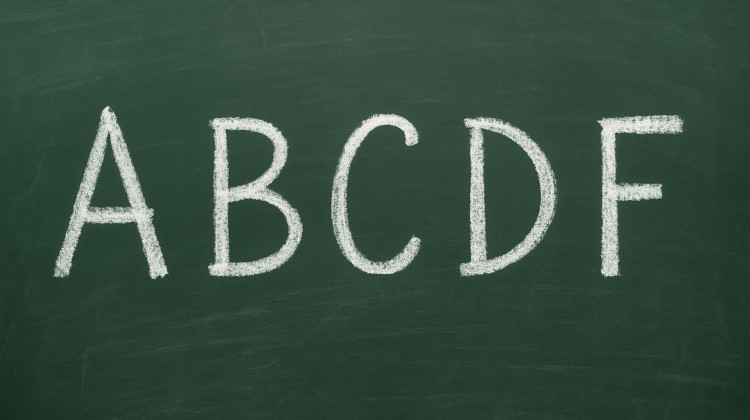
States cannot exclude children from a K-12 public education solely because of their immigration status.
Eric Weddle / WFYIHave a news tip for WFYI's education team? Share it here.
The Trump administration is ramping up efforts to deport immigrants who are in the country illegally. But public schools are required to provide all children — regardless of their immigration status — with an education.
An estimated 733,000 school-aged children live in the U.S. without legal status, including about 6,000 in Indiana, according to the Migration Policy Institute.
Last month, the Trump administration issued a new directive allowing U.S. Immigration and Customs Enforcement officers to make arrests in schools, churches, hospitals and childcare centers, among other areas. The directive rolls back long-standing guidance under both Democratic and Republican administrations that protected “sensitive” locations, like schools, from immigration enforcement.
WFYI spoke with two legal experts to better understand what rights immigrant students have and what public K-12 schools must provide.
What rights to an education do immigrant students have under federal law?
States cannot exclude children from a K-12 public education solely because of their immigration status. The 1982 Supreme Court ruling in Plyler v. Doe determined that it is unconstitutional to deny immigrant students — including those without legal status — a free education.
The ruling struck down a 1975 Texas law that allowed school districts to deny enrollment to foreign born children not legally admitted to the U.S. The ruling also prevented a Texas school district from charging tuition to immigrant students who could not prove they entered the U.S. legally.
In their 5-4 ruling, the Supreme Court majority stated the 14th Amendment provided all students living in the U.S. with a right to a free public education.
“The reasoning of the court when it decided this issue in 1982 was that there was no justification for punishing children who often are not even making the decision about whether to be in the country legally or illegally by prohibiting them from getting a public education,” said Nicole Hallett, clinical professor of law and director of the Immigrants’ Rights Clinic at the University of Chicago Law School.
How might those rights be challenged?
Legislation proposed by Republican state Reps. Jim Lucas (R- Seymour) and J.D. Prescott (R-Union City) would allow Indiana schools to deny enrollment to immigrant students who they have reason to believe are not in the U.S. legally. House Bill 1394 has not received a hearing in the Education Committee, and it’s unclear if it will.
“At this point, it's perfectly clear that the [legislation] that's been proposed in Indiana is unconstitutional under current law,” Hallett said. The bill's authors likely expect a challenge would be forthcoming if it became law. The legislation also requires the state attorney general to defend a school corporation if it is sued for denying an immigrant student enrollment.
Plyler has survived challenges over the last four decades. But there’s concern among immigrant advocates that it will be challenged again — and the outcome could be different this time.
“I think if Indiana isn't the state that challenges it, another state will and we will see this issue come back before the court before long sooner or later,” Hallett said.
The Heritage Foundation, a conservative think tank with ties to the Trump administration, issued a brief earlier this year calling on states to require schools collect immigration status information from students, and to pass laws that charge unaccompanied migrant children and the children of undocumented immigrants tuition to attend public schools. The Heritage Foundation acknowledged that such legislation would invite legal challenges and likely face legal challenges and could prompt the conservative-majority Supreme Court to reconsider the Plyler ruling.
Given the current Supreme Court’s willingness to overturn legal precedent, Hallett said it’s unclear whether the justices will agree that immigrant students without legal status have a constitutional right to a free education.
“I'm quite worried that when this case gets to the Supreme Court that we may see a very large change in how we think of public education in this country,” Hallett said.
Do schools collect information about students’ immigration status? What information can they share with immigration authorities?
Schools do not typically collect information about students’ immigration status.
“We know of no schools — no K through 12 schools — that ask for that information, and for good reason,” said Nicholas Espíritu, deputy legal director at the National Immigration Law Center.
Espíritu said asking for that information would create fear among students and their families, and likely cause many to disengage with the public school system.
“More importantly, this information has no bearing and doesn’t relate at all to a school’s core mission, which is to educate kids and prepare them to be full members of society,” Espíritu said.
In 2011, Alabama passed a law that required schools to verify the immigration status of students and their parents, among other measures. A coalition of civil rights groups — including the National Immigration Law Center — challenged the law. A 2013 settlement struck the part of the statute that would have required schools to inquire about and collect such information.
“So we believe not only that schools shouldn't — as a matter of good educational policy — collect immigration information, but also that it's going to substantially interfere with students’ rights under Plyler,” Espíritu said.
Espíritu said other information about students collected by schools — including where and who they live with, their grades and health conditions — can’t be shared under the Family Educational Rights and Privacy Law.
Additionally, Hallett said state and local governments aren’t required to cooperate with the federal government.
“They do not have to hand over information to the federal government unless there’s a judicial warrant,” Hallett said.
Can schools deny Immigration and Customs Enforcement agents access to their buildings?
Without a judicial warrant, schools are not required to allow immigration enforcement agents inside.
“Law enforcement cannot force their way into even public buildings without a judicial warrant,” Hallett said.
Hallett said schools are well within their rights to deny access to immigration authorities without a judicial warrant, despite a directive from the Trump administration that reverses yearslong policy that prevented immigration agents in schools.
“It is very clear, legally, that state governments and local governments are not required to assist with federal immigration enforcement beyond what is required by a warrant,” Hallett said.
Indiana Gov. Mike Braun, a Republican, said the state would comply with ‘reasonable’ federal requests to identify immigrants without legal status who have committed egregious crimes.
Indianapolis Public Schools sent a message to families last month that they would not allow ICE agents inside their schools without a warrant.
Espíritu said messages like the one sent by IPS will help make students feel safe when they come to school.
“Students can focus on learning rather than the fear that ICE agents might be allowed to walk on campus,” Espíritu said.
Contact WFYI investigative education reporter Lee V. Gaines at lgaines@wfyi.org. You can follow her on Bluesky.
 DONATE
DONATE






 Support WFYI. We can't do it without you.
Support WFYI. We can't do it without you.